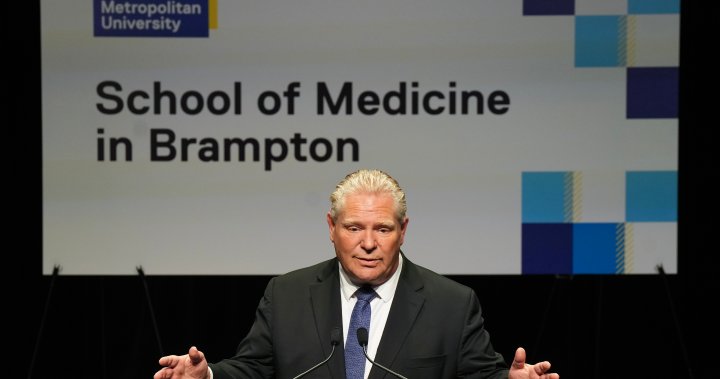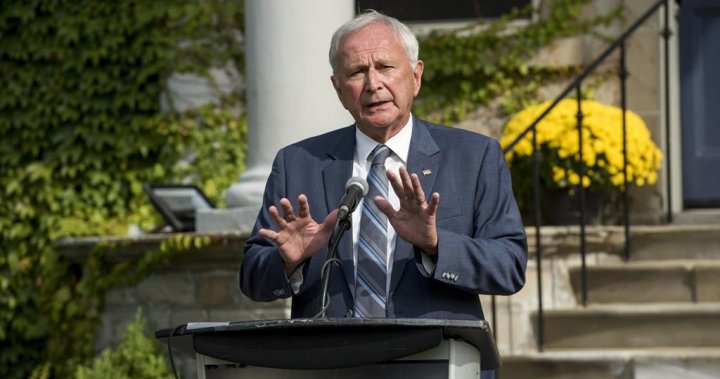Stagnant provincial funding and a years-long tuition freeze are “undermining” student success at post-secondary institutions, according to Ontario universities, which are pleading with the Ford government for more money in 2024.
The province launched its pre-budget consultations this week, allowing a variety of stakeholders that rely on money from Queen’s Park to make their pitch for increased funding in front of a cross-party committee of MPPs.
The Council of Ontario Universities on Tuesday asked the government to lift its freeze on tuition and boost funding for post-secondary institutions by 10 per cent, warning that a lack of cash has left universities on the brink of disaster.
“As a result of growing financial pressures, we estimate that at least 10 universities are currently projecting operating deficits this year, totalling $175 million growing to $273 million,” council president Steve Orsini warned.
Without an increase in funding, Orsini said, universities will have to continue pulling back student services, such as support for mental health, or run the risk of financial peril.
The cash crunch began in 2019 when the Ford government followed through on a campaign promise to lower college and university fees.
Get the latest National news.
Sent to your email, every day.
The province cut tuition rates for domestic students by 10 per cent and froze them at 2019 levels — costs that were effectively borne by institutions that didn’t see a corresponding rise in funding.
At the same time, the institutions were dealing with a 2017 provincial decision that capped the number of domestic students that would be funded by Queen’s Park.
“There are currently about 20,000 domestic students that are not funded by the province, resulting in $175-million loss a year,” Orsini told the Ford government.
A blue-ribbon panel, struck by the Ford government to review the financial stability of post-secondary institutions, suggested the funding gap left institutions in a precarious position.
“This situation is ever more likely to pose a significant threat to the financial sustainability of a major part of the province’s postsecondary sector,” the report said last November.
To cope with the lack of funding, post-secondary institutions increasingly turned to international students to help fill the revenue gap.
“International student tuition is uncapped,” said NDP MPP Peggy Sattler, who serves as the party’s critic for colleges and universities.
“It has, in many cases, forced institutions to really ramp up the recruitment of international students because that’s one way they can bring those dollars into the institution.”
The government’s panel echoed the sentiment.
“Colleges and universities have come to rely more and more on international student tuition fees to the point where the revenue from this source is fundamental to the sector’s financial sustainability.”
While Orsini said universities have been “very responsible” in how many international students are being enrolled, he warned the province that a lack of funding could come with consequences.
“These financial pressures have led to cuts that are impacting student services and supports,” Orsini said.
In a statement to Global News, Ontario’s Ministry of Colleges and Universities said it is “carefully reviewing” the recommendations from the blue-ribbon panel and is looking to create a “sustainable path forward.”
“Included in this review is how tuition and funding for colleges and universities will proceed in the 2024-25 school year,” a spokesperson for Minister Jill Dunlop told Global News.
“We will continue our work with postsecondary institutions to create greater efficiencies in operations, program offerings and sustainability of the sector.”
© 2024 Global News, a division of Corus Entertainment Inc.




